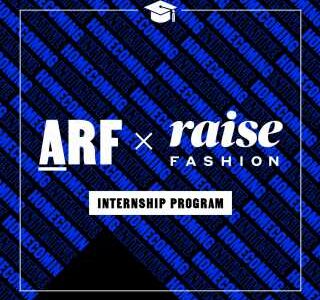
RAISEfashion, Anti-Racism Fund Partner to Address Diversity in Fashion’s Pipeline
As fashion companies fire up diversity and inclusion programs, some in the industry are building momentum around pipeline initiatives to help make fashion’s next generation more diverse.
A new paid summer internship program, the product of efforts from the organizations RAISEfashion and Anti-Racism Fund, aims to tackle the issue early in the process — the gateway stage for Black designers and aspiring executives to enter the industry.
RAISEfashion has said the 10-week internship, which can be a combination of either online or in person or both, will pay at least the state minimum wage or higher, and offer a minimum $2,000 stipend, with the exact amount to be determined based on need, to help cover living and travel expenses during the internship.
The program will start this summer and is currently seeking applicants from Historically Black Colleges and Universities, namely Howard University, Spelman College, Morehouse College, and Florida A&M University, according to the groups. Some 12 to 15 candidates will be chosen for the internship cohort.
The program aims to address some of the structural impediments that Black candidates face in fashion — a culture of unpaid internships, and network-based hiring practices that tend to favor applicants with financial resources and existing industry connections.

Related Gallery
Molly Goddard RTW Fall 2021
“The partnership with RAISEfashion and Anti-Racism Fund is addressing the access to entry for Black talent,” said Felita Harris, a founding board member for RAISEfashion.
“There are a lot of fashion schools that we could partner with and organizations to satisfy this objective,” she said. “However, utilizing HBCUs to stand as America’s example of what brilliant minds can accomplish when Black people are given access to opportunities, I think that is so pivotal at this time.”
“I believe it’s historically been a challenge, because the hiring criteria are not as objective as one would hope,” she added. “Unconscious bias, socioeconomic status and filtering through being ‘on-brand’ are obstacles that diverse candidates experience more than others.”
The internships, in New York City and Los Angeles, will be offered at major fashion brands and retailers including Bloomingdale’s, Richemont, Cartier, Tory Burch, Saks Fifth Avenue, Lafayette 148, Shopbop, Frame, Intermix, Staud, Jonathan Simkhai, Altuzarra and ITB Worldwide, and in a range of creative and business roles including buying, merchandising, design, e-commerce, finance and marketing.
Interns will also each be assigned mentors who are senior executives across the fashion industry, according to the organization.
“This is a very personal one-on-one experience, where the intern will be able to ask questions across a broad range of topics,” Harris said. “Our allies have really stepped up for this internship, to stand against systematic racism, and the exclusionary process that plagues the fashion industry.”
Students can find the application on the Raisefashionnow.org website, and apply until the March 12 deadline.
Recent industry surveys have sought to highlight how various forms of bias affect the experience of Black employees and people of color in fashion. For instance, Black employees in fashion question the actual meritocracy of their industry at higher rates than white peers, according to a report released this month by the CFDA and PVH Corp., based on a McKinsey & Co. survey of more than 1,000 employees in fashion.
The report, titled, “State of Diversity, Equity and Inclusion in Fashion” found that roughly 26 percent of Black employees surveyed disagreed that “the best opportunities go to the most deserving employees,” compared to 16 percent of white employees who said the same.
“One of the biggest areas where we saw a gap was around perceptions of fair and objective criteria, both in hiring and in promotion,” Emily Gerstell, associate partner at McKinsey & Co., said at Harlem’s Fashion Row’s annual digital summit this month, in a panel moderated by Harris. “That’s something you can do something about.”
Hiring and promotion practices that keep selecting for the same type of candidates have also kept companies stuck in a cycle, industry professionals say. The lack of diversity in hiring, and failures to retain and promote people of color to leadership roles keep company leadership stagnant and then perpetuating similar hiring practices.
McKinsey’s broader retail industry surveys have also pointed to this broader leadership problem. In January, the company wrote that in 2019, women accounted for just 14 percent of executives at retail and consumer companies and held just about a quarter of board seats. For non-white people in the industry, those figures were even lower — they had just 13 percent of executive positions and 16 percent of board seats, according to the McKinsey report.
“I think we have a lot of work to do at the leadership level,” said Harris. “A large percentage of Black employees are hired at the retail level, but at the leadership level, [we need to] create a succession planning strategy that includes diverse candidates, that would really ensure that our industry is committed to the growth and development of Black talent.”
Source: Read Full Article